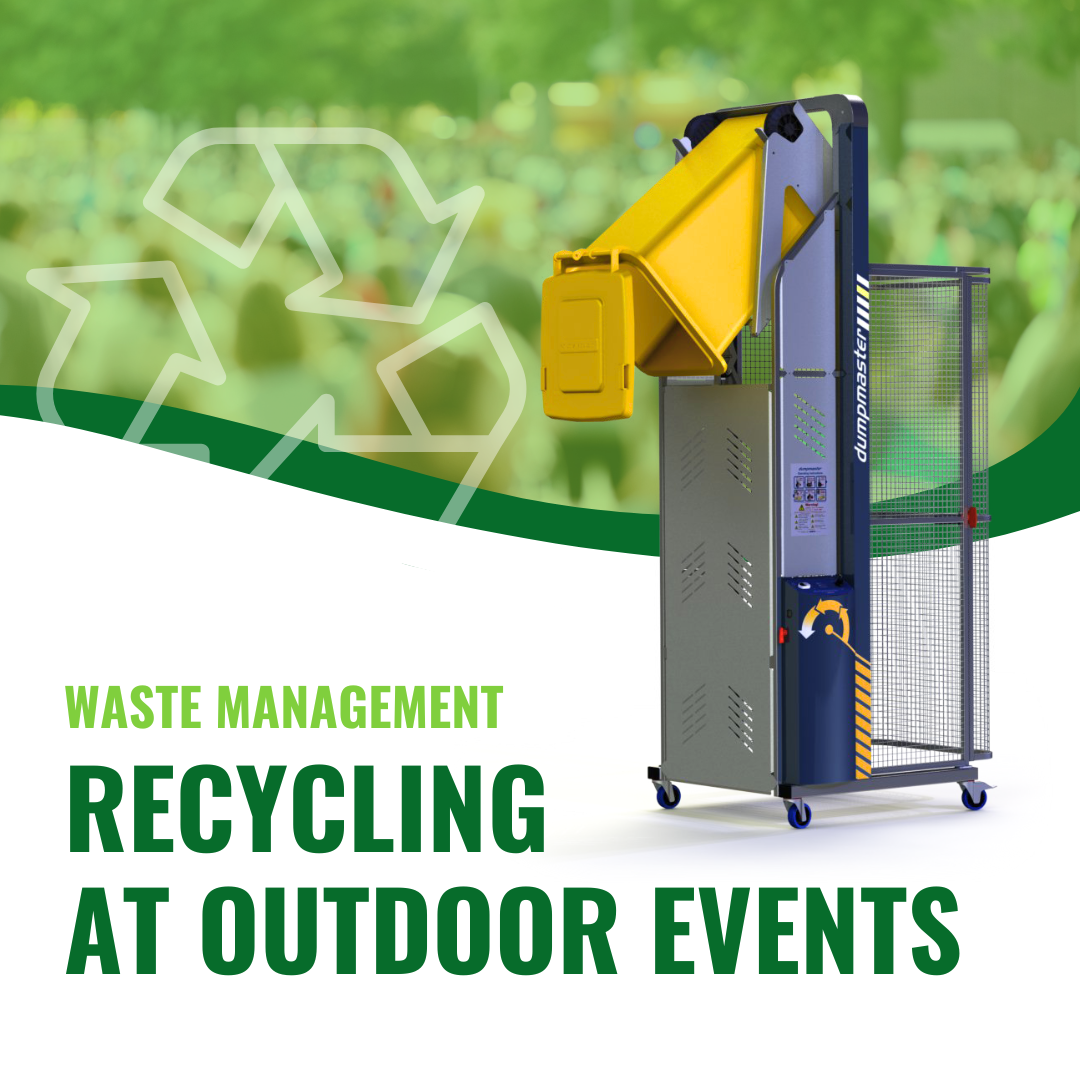We use cookies to make your experience better. To comply with the new e-Privacy directive, we need to ask for your consent to set the cookies. Learn more.
Recycling at Outdoor Events
Summer is nearly upon us, and organizers everywhere are completing their plans to improve recycling at outdoor events. From state fairs to city sporting events, every occasion that brings the crowds together is an opportunity to edge closer to our zero-waste future.

Of course, there are some challenges to overcome. Venues may not have in-house recycling infrastructure in place. You might have a hard time finding a waste hauler that specializes in green waste management. Worst of all, event guests are bound to introduce some level of contamination into your recycling and composting bins.
Luckily, solutions are available. Here are a few things to keep in mind as you prepare a recycling program for your next big outdoor event.
1. Evaluate Available Markets for Recyclables in Your Area
BioCycle Magazine states the fundamental challenge of successful recycling programs, writing "The design of a recycling system for a particular event or venue must be based on an understanding of waste stream composition and available markets for materials to be recovered."
Given the recent changes in Chinese policies on accepting recyclables from around the world, this is no time to make assumptions. Reach out to waste haulers to see what materials they have markets for at the time of your event. This information will inform the next step of the recycling plan.
2. Control the Waste Stream Composition from the Start
Prevention is worth a pound of cure, as they say, and every green event starts with a conversation with vendors about packaging and serving materials. The organizer's contracts can insist that vendors use recyclable materials in their single-use dishes; there's no point investing in a robust recycling program when the event doesn't generate recyclable waste.
The second point-of-origin problem for events is bin contamination. Cut down on this phenomenon by clearly labeling bins; placing recycling bins and trash bins together in all cases; and posting volunteers at collection points to guide visitors to the appropriate bin.
3. Invest in Ergonomic Equipment to Optimize Productivity
"Total waste management labor needs likely will be higher when handling event discards in multiple streams," reports BioCycle. That's not necessarily the case.
By providing existing staff with ergonomic material handling equipment, event managers can diversify waste streams without relying on additional labor.
Hydraulic Bin Dumpers lift and empty waste bins into dumpsters. Power Pushers assist employees with hauling wheelie bins (even when they’re loaded with thousands of pounds of waste).
These assistive machines give a single employee the ability to handle tasks that used to take a whole team. It won’t take long for investments in material handling equipment to show a return.
4. Buy Recycled from the Start
It's a great start to improve recycling at a big event, but the renewable circle isn't closed until those materials reenter the market. You can help by choosing products made from recycled materials to support your event.
Buy recycled goods, boost recycling rates, and report your successes following a great event. Not only will guests feel better about their participation, but you'll be helping to keep our growing landfills under control.
Recycling at outdoor events has never been easier, so this is a great time to start improving diversion rates.
